The Habit Of Forgiveness: How To Forgive
THE HABIT OF FORGIVENESS: HOW TO FORGIVE WHEN IT SEEMS IMPOSSIBLE, 7 WAYS (ISSUE 109)
By Diane Gold
“Forgiveness is to set a prisoner free, and to realize the prisoner was you.”
This quote is associated with Lewis B. Smedes, author of The Art Of Forgiving. It is also associated with Corrie ten Boom, author and Dutch protector of Jews and resistance workers during World War II. When Corrie, who was imprisoned for hiding Jews and those who didn’t support the Nazi way, came face to face with one of her captors, she walked the walk of forgiveness. She and one of her former concentration camp guards came face to face. They held hands, and she forgave his acts, according to review of her book, which mentions that, in her experience, those who are able to forgive are best able to rebuild their lives.
 Forgiveness author, Smedes, quotes,
Forgiveness author, Smedes, quotes,
“Forgiving does not erase the bitter past. A healed memory is not a deleted memory. Instead, forgiving what we cannot forget creates a new way to remember. We change the memory of our past into a hope for our future.”
This is the way habit change works. We don’t get rid of it; we replace it with a new action and reward.
THE CUE
All of us have experienced hurt, whether it is a small trauma in our lives or an unspeakable wound that is life changing. We always attach the event to a person or people involved. If that person or group had not hurt us, we would not be hurt.
Being hurt is the cue that triggers our action.
THE ACTION
In many cases, we are led to defensive behavior. For small infractions in our lives, we may cry, stomp our feet or laugh it off. For larger, more devastating experiences, we may go to a support person or group. Whatever action we take leads to a reward of some kind.
THE REWARD
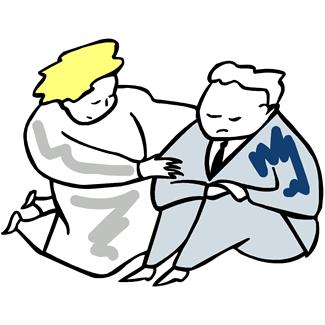
The reward we experience from crying is relief from the outlet. Same with stomping our feet. These behaviors help us cope. We may have a moment of patting ourselves on the head through crying or foot stomping. When we laugh something off, we are experiencing the joy of living and being able to deal well with discomfort. Not always possible.
For larger events, being supported by others leads to being able to cope with a situation. Coping is our reward.
ACTION AFTER TRIVIAL HURT
Here’s a good place to mention that trivia is in the eyes of the beholder. If we think we have been wronged, then we act in a way to get comfort. What is trivial to you may be traumatic to me.
I am reminded of one of my neighbors who often holds on to the spats she has with local merchants. When she feels violated by the merchant, her action is to talk about the experience at length and to announce that she will no longer patronize the merchant. This leads her to her reward, getting recognition for her plight and for personal grandeur.
With any trivial hurt, people act timidly, angrily or in a tempered manner.
ACTION AFTER IMMEASURABLE HURT
Once we are hurt in a life changing way, we still act timidly, angrily or in a tempered manner. We probably reach out for support which brings us the reward of lessening the pain.
UNDERLYING OUR HURT
 As we all know, we feel more than one thing at once, such as anger and vulnerability or happiness and confidence. Next to these emotions, we place responsibility for our being hurt on someone; often we put it on ourselves. Other times, we put it on the person or group who created the hurtful situation.
As we all know, we feel more than one thing at once, such as anger and vulnerability or happiness and confidence. Next to these emotions, we place responsibility for our being hurt on someone; often we put it on ourselves. Other times, we put it on the person or group who created the hurtful situation.
When this underlying responsibility lingers, and it usually does, we are blaming someone. This is part of the reward phase when we blame others. It helps us cope. It is reverse reward when we blame ourselves.
Either way, that’s where developing the habit of forgiveness comes in.
DEVELOPING THE HABIT OF FORGIVENESS
There are 3 scenarios when we were hurt:
1) it was our fault.
2) it was someone else’s fault.
3) it was no one’s fault.
In the first 2 scenarios, the forgiveness habit can move mountains. People do religious rituals, go to forgiveness classes, go to support sessions, read forgiveness books, all in order to learn to forgive. These avenues are fabulous. Every one of them develops a new pattern of action when we feel hurt, just like the way we develop or change any other habit. And just like with any other habit, we have to replace the old habit for the new one to be currently accessible.
WHY FORGIVENESS?
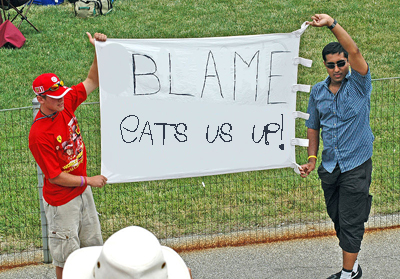 The reason it’s so important to forgive is because blame eats us up. We may think that if we mortally hurt the responsible person, we will be healed. This is one of our baser instincts that is worth looking at. It’s not legal to wound someone, so it’s not a solution. It’s not moral to wound someone. It’s not wise to stoop to the bad behaviors of others. This is where forgiveness comes in.
The reason it’s so important to forgive is because blame eats us up. We may think that if we mortally hurt the responsible person, we will be healed. This is one of our baser instincts that is worth looking at. It’s not legal to wound someone, so it’s not a solution. It’s not moral to wound someone. It’s not wise to stoop to the bad behaviors of others. This is where forgiveness comes in.
HOW TO FORGIVE?
How to forgive? We must develop it.
People have always thought of me as a forgiving and understanding person. They have not seen me in the face of being assaulted, having family members hurt, being cheated out of money, having a car accident because of a drunk driver. Fortunately for me and mine, I have not had to experience all of these atrocities, although some have crossed my path. I don’t feel cool, calm and collected when I am hurt. But, I do have certain methods of dealing with forgiveness that I will share.
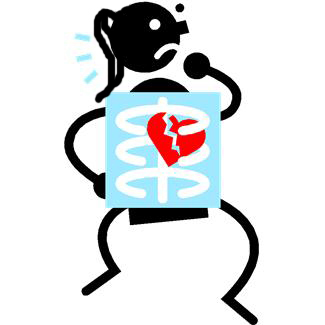 When people lash out and hurt us, they are insecure, self-absorbed, immature, impatient, fearful and hurt from a broken heart. They have become this way because someone has taken a part of their life, and they have not been able to forgive it. Do they always know it? No. In the odd cases where this is not the case, the individual is usually broken in some other way.
When people lash out and hurt us, they are insecure, self-absorbed, immature, impatient, fearful and hurt from a broken heart. They have become this way because someone has taken a part of their life, and they have not been able to forgive it. Do they always know it? No. In the odd cases where this is not the case, the individual is usually broken in some other way.
Every time we get hurt, we must look at how ethical we have become, how much we have grown as humans. Even if we have had a bad day every day of our lives, someone has had it worse. If we have 4 limbs, we’re ahead. If we went to school, we’re ahead. If we have a toilet, running water and have seen a doctor, we’re ahead.
Just because others are in worse shape is not going to develop forgiveness in us. However, this concept can prepare us for new action.
The hardest thing to forgive is when someone hurts our child. It is unthinkable that we could ever forgive this. Deep hurt might be 50 years old, and we still sit with it. Does it help if we sit in anger, torment and vengeful scheming? No. We are probably shortening our lives. And, yes, this feels like the right thing to be doing. Because we have let this behavior develop.
WHAT IF?
H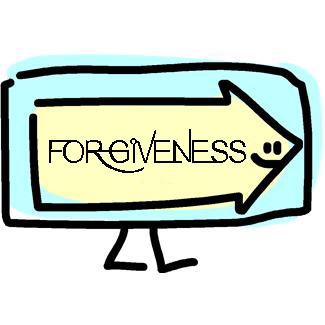 ere are some action steps that may lead us to begin the path of forgiveness. It is not impossible, no matter what it feels like. It’s like any other habit that requires a starting point and constant repetition. In the spirit of any holiday that may have to do with forgiveness, these action steps may be surprisingly useful.
ere are some action steps that may lead us to begin the path of forgiveness. It is not impossible, no matter what it feels like. It’s like any other habit that requires a starting point and constant repetition. In the spirit of any holiday that may have to do with forgiveness, these action steps may be surprisingly useful.
ACTION STEPS
These steps are based upon our tendency to forgive someone who shows remorse. Even though the person who hurt us may not show it, and this lack of it can conjure feelings of revenge in each of us, these steps take us one step back in the life of the hurter who is still acting out revenge from the day she was hurt, in the first place. So the remorse is the acting out.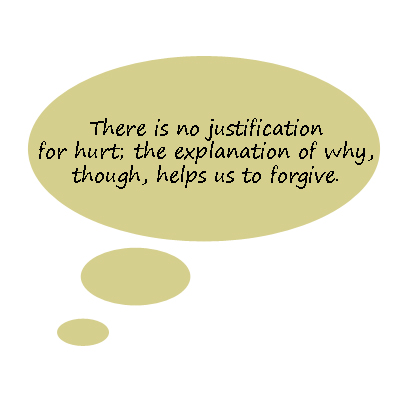
There is no justification for hurt; the explanation of why, though, helps us to forgive.
1) When someone hurts you or your family member, think of the person as an abused child. Even if it is not specifically the case, in some way, it very definitely is the case. Take that thought action immediately. It will calm you down and allow you to help yourself forgive a person like that. Realize that you would make allowances for a child who had been hurt in such a manner.
Or
2) When someone hurts you or your family member, think of the person as the victim of someone who stole her limb at an early age. Even if it is not specifically the case, in some way, it very definitely is the case. Take that thought action immediately. It will calm you down and allow you to help yourself forgive a person like that. Realize that you would make allowances for a child who had been hurt in such a manner.
Or
3) When someone hurts you or your family member, realize that the person feels as small as a small crawling insect. Otherwise, the person would not take liberties with someone else’s life. It is not too difficult to forgive someone like this, especially someone who may have been made to feel this way all her life.
Or
4) When someone hurts you or your family member, picture the hurter as having just experienced the same, exact hurt. Think of how surprised this person must have been and consider that it’s your responsibility to act well.
And
5) When someone hurts you or your family member, join a group of people who have also experienced the same hurt. Type in your type of hurt followed by the word group in your favorite search engine or card catalog. Many groups await you.
And
6) When someone hurts you or your family member, watch this trailer and decide if you want to watch the movie. It depicts The Parents Circle Families Forum’s group of bereaved Palestinians and Israelis, all of whom had a family member killed by the other side. http://www.youtube.com/watch?v=RzJkBxQC4Tg
And
7) When someone hurts you or your family member, realize that every negative thought or action we have or take creates negativity for the world. Likewise, every positive thought or action we have or take impacts the world in a positive manner. Consider choosing the positive road in the name of those who were hurt (including yourself) for the sake of the evolution of morality.
CONCLUSION
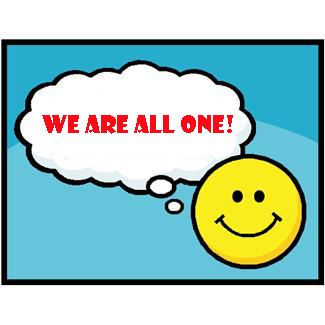
I believe that we are all one, that all energy falls into one big vat with all the positive and all the negative thoughts, emotions, actions. Therefore, the more goodness we bring, the more goodness there will be. Forgiveness is part of this pot. The more we contribute to it, the richer and more beautiful our civilization will become.

Happy Forgiveness Season. May we develop the habit of forgiveness and be the shining examples we all need.
![]()
FEEDBACK
Please leave a comment and LIKE.
DIANE GOLD, AUTHOR
Diane Gold, Founder of Warriors of Weight, Turning Habits Into Health, is a mentor in tai chi, kung fu and meditation, a music, fitness and stress expert, dedicated mom, studying plant-based nutrition and habit change.
She believes we can develop forgiveness. It is one of the hardest habits to develop. She says,
“We don’t let go when someone hurts or our family. But that is commonly because we see the hurter as different from who we are and forget what makes most people hurt: being hurt. In looking at ways to forgiveness, we can go back to the life of the one who hurt us and realize the pain that is being acted out now.
“We are civilized and have will power. We were also raised with some sense of morality. With these traits, we have a chance at forgiveness. It may not happen overnight. I know it didn’t for me. But pre-planning and repetition will make it happen. And then, we will be free.”


 “My research on forgiveness has led me to this unsettling conclusion: The desire for revenge isn’t a disease that afflicts a few unfortunate people; rather it’s a universal trait of human nature, crafted by natural selection, that exists today because it helped our ancestors adapt to their environment.
“My research on forgiveness has led me to this unsettling conclusion: The desire for revenge isn’t a disease that afflicts a few unfortunate people; rather it’s a universal trait of human nature, crafted by natural selection, that exists today because it helped our ancestors adapt to their environment.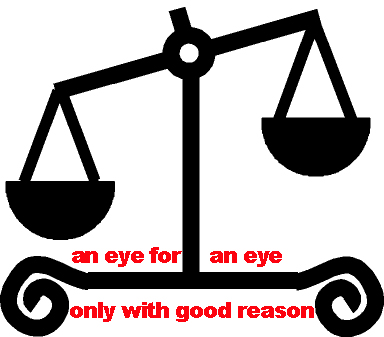
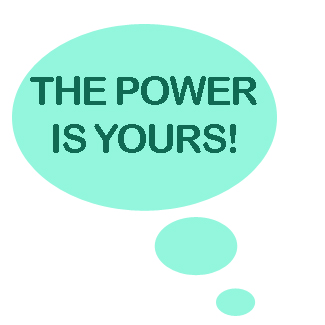
 “No! It’s in us for survival reasons. As humans with high thought process, we CAN realize when revenge is for survival and when it’s only for ego. We can temper ourselves. That’s why I equate forgiveness and revenge with any habit of substance, emotion, gambling or ice cream; it will always be there, but doesn’t always require an action.
“No! It’s in us for survival reasons. As humans with high thought process, we CAN realize when revenge is for survival and when it’s only for ego. We can temper ourselves. That’s why I equate forgiveness and revenge with any habit of substance, emotion, gambling or ice cream; it will always be there, but doesn’t always require an action.





